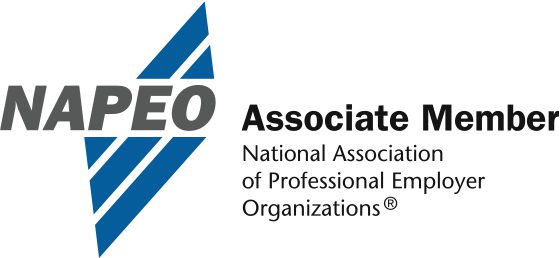Guest blog provided by One Medical
In 2019, the National Alliance on Mental Illness (NAMI) estimated that one in five U.S. adults experience mental illness each year. That’s over 51.5 million Americans, even pre-pandemic. Now, as we enter the second year of COVID-19, experts worry that the country’s mental health crisis may be worse than ever. A December survey by the U.S. Census Bureau found that 42% of people reported symptoms of anxiety or depression, up from 11% the year prior. Meanwhile, NAMI says it saw a 70% increase in call volume to its helpline for people living with mental health conditions and their loved ones.
At this rate, if you didn’t know anyone struggling with their mental health before the pandemic, chances are high that you do now. In the past year, unemployment has hit an all-time high, loved ones have been lost, and millions of Americans have been isolated from friends and family. But while mental illness is becoming increasingly common and the stigma around it is changing, watching a loved one struggle with their mental health hasn’t gotten any easier. It can be heartbreaking seeing a friend or family member in pain and it may even leave you feeling worried, frustrated, or helpless. You may not know what to say to show your support, how to express your concern, or even how to broach the subject in the first place. Though it may be difficult, showing your loved one support and understanding can be the key to their recovery. Here’s what you can to do help:
How To Show Support
Educate Yourself
The more you understand what your loved one is going through, the better you’ll be able to help them. If someone you know has been diagnosed with a mental health disorder, read up on the specific symptoms, causes, treatments, and myths and misconceptions. While each person may have their own unique experience with a mental illness, knowing the generalities can help you understand what to expect. “Coming into the conversation with some knowledge can help your loved one feel understood and able to be more open about their experience,” said One Medical Mental Health Specialist Sherese Ezelle, LMHC, MHP. If your loved one hasn’t been diagnosed with a particular condition, but you suspect they may be struggling with their mental health, educate yourself on the warning signs. It can be difficult to distinguish some mental health conditions like depression or anxiety from normal bouts of sadness and worry, and oftentimes, friends and family may identify a problem before their loved one recognizes it themselves. Additionally, someone struggling with their mental health may feel ashamed or embarrassed to bring up the topic themselves, so it’s important to recognize the signs on your own so you can help.
Express Your Concern

If you notice a pattern of behavior changes or mood in your loved one’s mood or behavior, you should bring up your concerns. While it may be uncomfortable to get the conversation started, doing so is the first step to getting your loved one the help they need. Start by expressing your own concern rather than acting as if something is wrong with the person. Try using statements like “I’ve been worried about you lately” or “I’m concerned”. Let them lead the conversation by asking open-ended questions like “I’ve noticed you’ve seemed down lately. How are you feeling?” Let them volunteer information on their own time and don’t pressure them to talk if they aren’t ready.
You may be the first person to bring this up with them and it may take some self-reflection and evaluation before they are able to fully recognize the issue. “Remind them that you are available to listen when they are ready,” said Ezelle. “This will help your loved one feel comfortable opening up to you in the future.” A simple “I love you”, “I’m here for you every step of the way”, or “I want to support you in any way that I can ”also can have a great impact, said Ezelle. “This may seem like a generic thing to say, but in moments of need and confusion your loved one may have forgotten what they mean to you, so these words can go a long way.”
Listen
One of the best things you can do to help your loved one is to simply offer up your presence. Lending a non-judgmental ear and being a shoulder to cry can be comforting to someone who may be feeling alone, worried, or depressed. Let that person know you are there for them and available to listen. Show empathy and avoid trying to solve the problem or offering unsolicited advice. While it’s natural to want to find a solution to your loved one’s pain, doing so may minimize their feelings and discourage them from further opening up. Instead, validate and remind them that it’s okay to have these feelings. Offer reassurance and hope by letting them know that things will get better with proper treatment and time, and avoid criticizing or blaming them for their behavior of mood. Instead of offering advice, ask what you can do to help and what they need from you. “Be mindful of their experience and where they are in their space,” said Ezelle. “Remember that the fear and struggle of one person can be, and often is, completely different than another. Practice leaning into their expressed needs and leaning away from the feeling to fix and solve.”
Encourage Them To Seek Professional Help
As much as you may want to, you cannot help your loved one all on your own. While you may be able to provide some emotional support, mental health experts and medical professionals are trained to identify and create treatment plans for all sorts of mental health issues. To start, try encouraging your friend or family member to book an appointment with their primary care provider. Their primary care provider will be able to refer them to local mental health resources and specialists, as well as rule out other potential medical causes. For some people, it helps to draw the comparison to physical health and remind them that it’s just important to seek care for their mental health issue as they would for a broken bone or diabetes. Your loved one may lack the motivation to take these steps or may not feel well enough to do so, so try to remove as many barriers as possible. Offer to help book their appointment, reach out to potential therapists, check their insurance coverage, or go with them to their first appointment. You could even help your friend or family member put together a list of symptoms and questions to go over with their provider.
Offer Practical Help
Someone struggling with their mental health may feel overwhelmed by regular, daily tasks, so helping with everyday chores can go a long way. Offer to babysit their kids for a few hours or to do their grocery shopping for them. Even preparing a home-cooked meal or helping with household chores like dishes or laundry can alleviate stress and show you care.
Stay Connected
Individuals who are depressed or anxious tend to feel alone and may further withdraw from their friends and family. Check in with your loved ones regularly with a text, phone call, or email to let them know you are thinking about them and still care. While they may not be actively reaching out to you, still continue to invite them places as you normally would. Make loose plans to do something low-key that doesn’t require a lot of energy or socialization like a walk or a quiet dinner. They may not want to get together yet or may cancel at the last minute if they don’t feel up for it, but continuing to invite them will help them feel included and less alone.
Take care of yourself
Supporting someone with mental health issues can be exhausting, time-consuming, and frustrating. It’s easy to let your own health and wellness fall through the cracks when putting someone else’s needs first. This is neither beneficial for you or the loved one you are trying to help. “To best support your loved one, you must be strong and actively present, so be sure to time for yourself to relax and recuperate,” said Ezelle. Continue doing things you love like reading, cooking, or hanging out with friends. To avoid burnout, set clear boundaries for what and when you’re willing to help. This could mean only taking calls from your friend after work or only visiting them once a week instead of every day. It’s also important to seek support yourself. Talk to other family members and friends and ask them for help. You may even consider talking to a therapist or mental health expert yourself or joining a friends and family support group if you would like to talk to someone outside your immediate social network.
Be Patient
Finally, treating a mental illness is not a linear path. It can take time for someone to feel better and it may require trying more than one approach or medication. Even with treatment, your friend or family member may struggle with symptoms from time to time. It can also take time for your loved one to fully understand the severity of their condition and take it seriously. Understanding this can help you set realistic expectations for yourself and your loved ones. Remind yourself that things will get better with time and people with mental illness are fully capable of living happy, healthy lives
What To Say To Show Your Support:
“What is the best way I can support you?”
“I love you”
“Your feelings are valid”
“You’re important to me”
“I may not understand how you’re feeling, but you’re not alone”
“That sounds hard. I’m sorry you’re going through this”
What NOT To Say:
“Snap out of it”
“Think positive”
“I know exactly how you feel”
“It could be worse”
“What’s your problem?”
“It’s just because… [insert event or challenge]”
“It’s just in your head”
“Why can’t you get it together?”
“It’s your fault”

Mental illness such as depression can increase risk of suicide so it’s important to take any mentions of death or suicide seriously, as well as know the warning signs. If your loved one casually mentions death or suicide, talk about it. Ask follow-up questions. If your conversation leaves you feeling concerned or worried for your loved one’s safety, get a professional involved. Urge them to book an appointment with their therapist or ask if you can do it for them. If you sense there is an immediate risk of suicide or self-harm, call 911 or your local emergency room. Remove any dangerous weapons, medications, or other harmful objects and stay with your friend or family member until help arrives.







